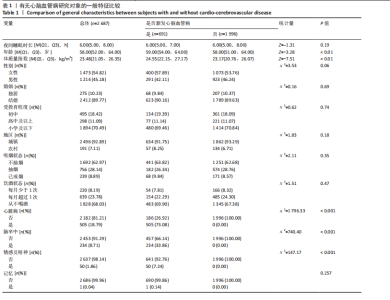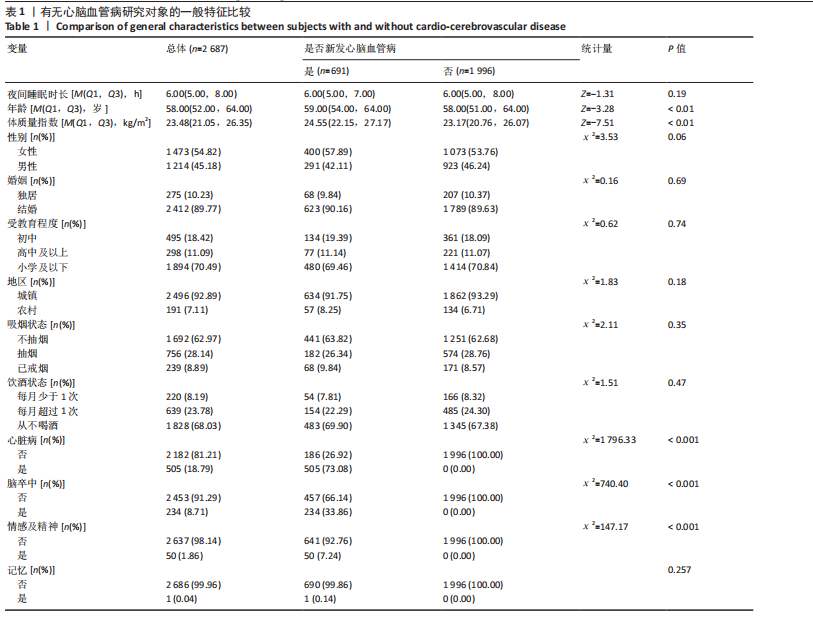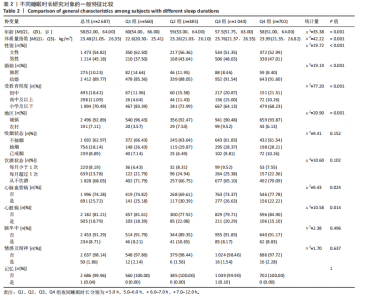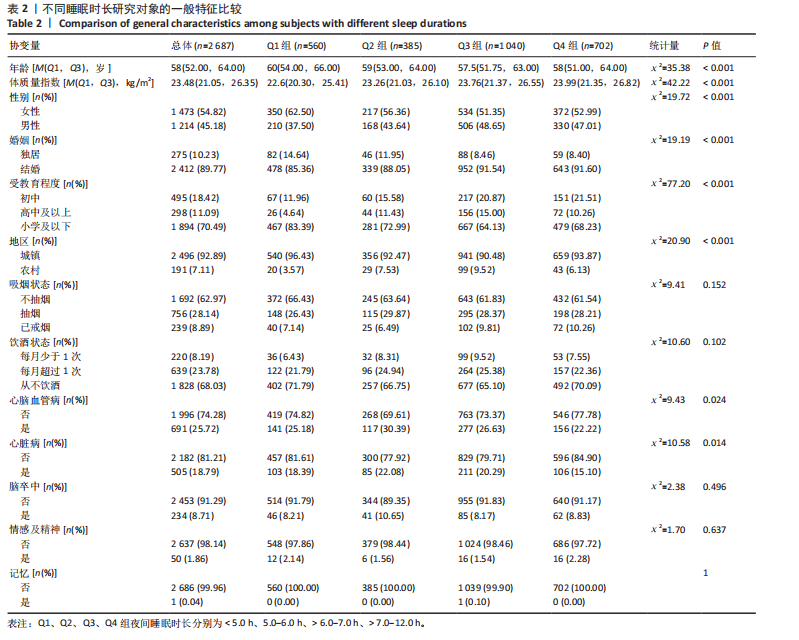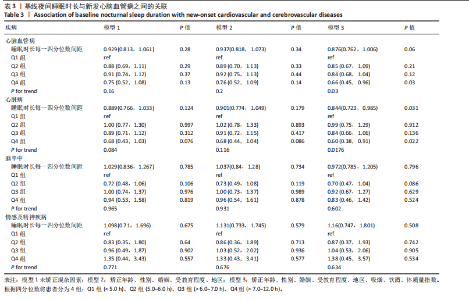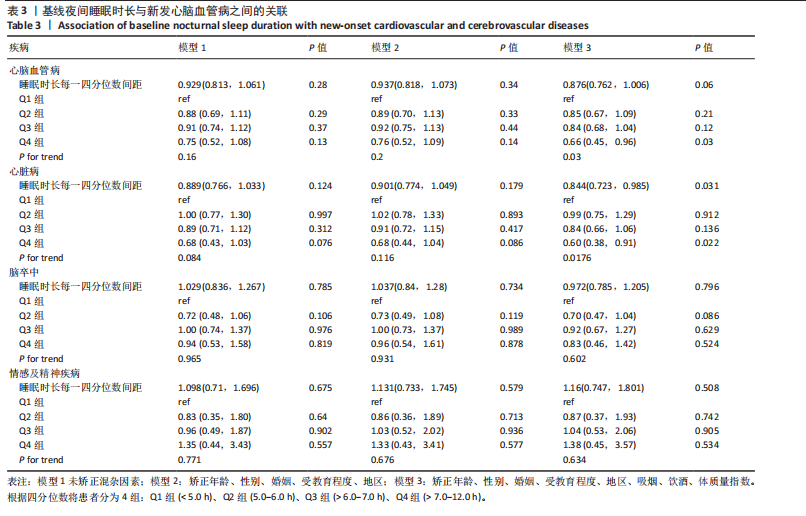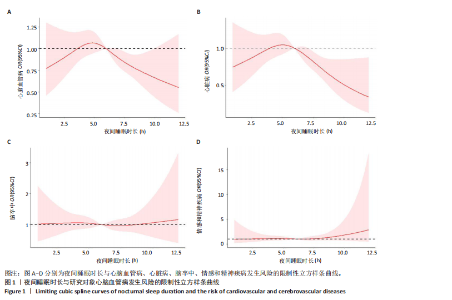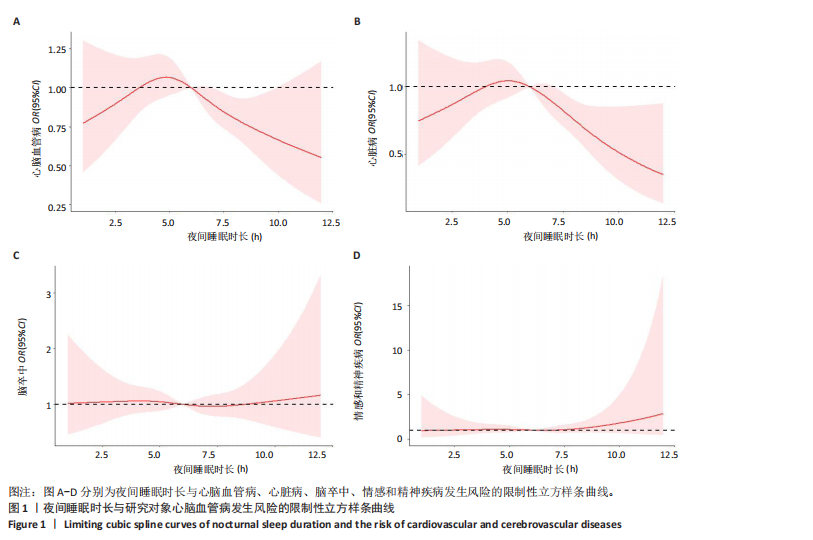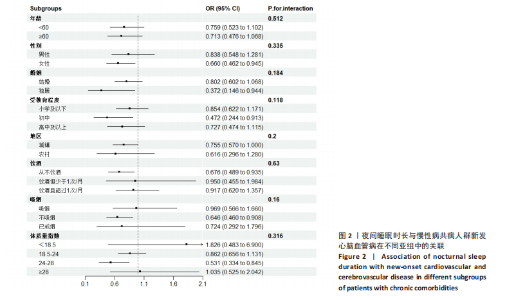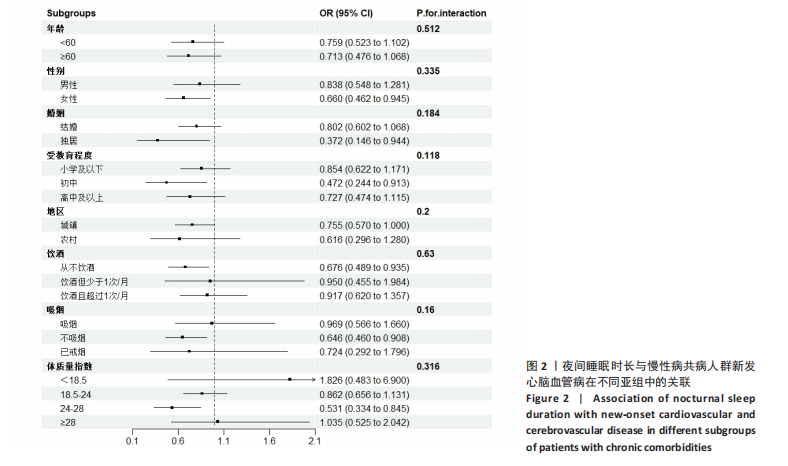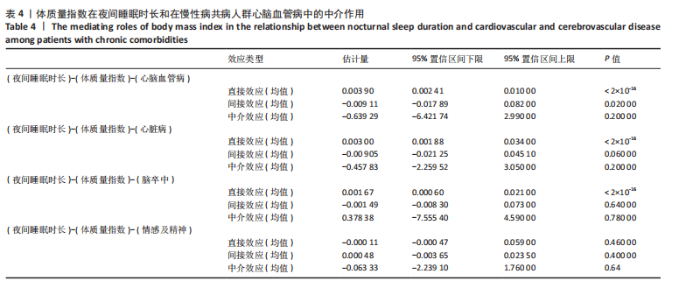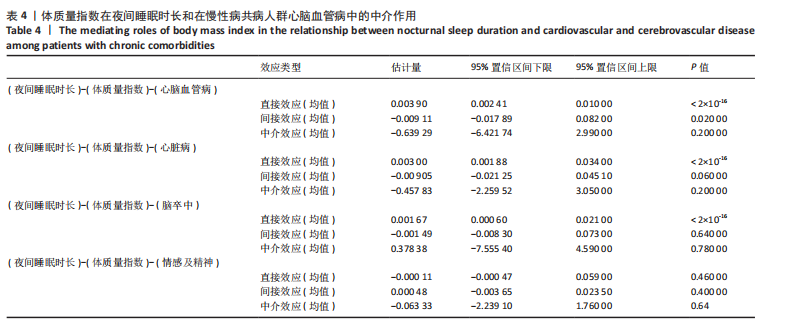[1] 国家卫生健康委员会宣传司. 国家卫生健康委员会2023年11月15日新闻发布会文字实录[EB/OL]. (2023-11-15) [2024-11-20]. http://www.nhc.gov.cn/xcs/s3574/202311/53b7a4cfc1804 f0e9eb1f369cf4e21f7.shtml.
[2] 袁天蔚,阮梅花,朱成姝,等.2023年慢性病防控领域发展态势[J].生命科学,2024,36(1):30-38.
[3] World Health Organization. Multimorbidity. Geneva: World Health Organization, 2016.
[4] LE RESTE JY, NABBE P, MANCEAU B, et al. The European General Practice Research Network presents a comprehensive definition of multimorbidity in family medicine and long term care, following a systematic review of relevant literature. J Am Med Dir Assoc. 2013; 14(5):319-325.
[5] 柏丁兮,高静,杨直,等.老年慢病共存患者治疗负担量表的研制[J].中国全科医学,2023,26(13):1613-1620.
[6] PLOS MEDICINE EDITORS. Multimorbidity: Addressing the next global pandemic. PLoS Med. 2023;20(4):e1004229.
[7] CROWLEY K. Sleep and sleep disorders in older adults. Neuropsychol Rev. 2011;21(1):41-53.
[8] PATEL D, STEINBERG J, PATEL P. Insomnia in the Elderly: A Review. J Clin Sleep Med. 2018;14(6):1017-1024.
[9] 陈贵海,邓丽影,杜懿杰,等.特定人群失眠诊断与治疗专家共识[J].中国临床药理学与治疗学,2024,29(8):841-852.
[10] YIN J, JIN X, SHAN Z, et al. Relationship of Sleep Duration With All-Cause Mortality and Cardiovascular Events: A Systematic Review and Dose-Response Meta-Analysis of Prospective Cohort Studies. J Am Heart Assoc. 2017;6(9):e005947.
[11] 于普林,王建业,胡建中,等.中国健康老年人标准(WS/T 802—2022)[J].中华老年医学杂志,2022,41(11):1263-1263.
[12] 朱鸣雷,刘晓红,董碧蓉,等.老年共病管理中国专家共识(2023)[J].中国临床保健杂志,2023,26(5):577-584.
[13] 陈旭娇,严静,王建业,等.中国老年综合评估技术应用专家共识[J].中华老年病研究电子杂志,2017,4(2):1-6.
[14] 高杨,平智广,裴晓婷,等.2009年中国中老年人群慢性病共病现状及相关因素的多重对应分析[J].卫生研究,2020,49(5):844-849.
[15] 傅利平,丁丽曼,陈琴.共病对中老年人医疗服务利用和费用影响及城乡差异研究:基于中国CHARLS(2015)数据的实证分析[J].中国农村卫生事业管理,2021,41(1):49-54.
[16] 闫伟,路云,张冉,等.基于CHARLS数据分析的我国老年人共病现状研究[J].中华疾病控制杂志,2019,23(4):426-430.
[17] 李瑞,雷伟,摆文丽,等.两种常见慢性病共病的影响因素分析[J].现代预防医学,2024,51(9):1568-1573,1619.
[18] 隗瑛琦,马爱娟,谢瑾,等.北京市18~79岁居民不良睡眠状况与慢性病共病患病关系[J].中国公共卫生,2022,38(11):1412-1416.
[19] 李亚杰,何瑞峰,索朗德吉,等.高原地区青中年人群睡眠与慢性病共病的关联[J].中华疾病控制杂志,2022,26(3):274-279.
[20] 刘意,刘琼,刘慧琳,等.湖南省居民慢性病共患情况及影响因素分析[J].中国慢性病预防与控制,2024,32(2):126-129,133.
[21] 许丽春,庄盼盼,黄雨欣,等.厦门市社区老年慢性病共病与不良生活方式共存现状研究[J].现代预防医学,2022,49(17): 3198-3204.
[22] 孟焕,飒日娜,王维华,等.陕西省成年居民慢性病共病情况及影响因素分析[J].中国慢性病预防与控制,2024,32(10):756-761.
[23] 张鸣庆,范伟,金玲玲,等.苏州市老年人慢性病共病现状及影响因素分析[J].现代预防医学,2024,51(17):3151-3156.
[24] 张华敏,于力力,刘瑞峰,等.宜宾市老年人慢性病共病的影响因素分析[J].成都医学院学报,2024,19(5):881-885.
[25] ZHOU L, MA X, WANG W. Relationship between Cognitive Performance and Depressive Symptoms in Chinese Older Adults: The China Health and Retirement Longitudinal Study (CHARLS). J Affect Disord. 2021;281:454-458.
[26] 刘帅帅,张露文,陆翘楚,等.中国中老年人多重慢性病现状调查与健康损失因素探究:基于CHARLS 2018数据[J]. 实用医学杂志, 2021,37(4):518-524.
[27] 王峻霞,丁令智,简金洋,等.基于CHARLS数据库的中国老年人慢性病共病现状及影响因素分析[J].应用预防医学,2023,29(3):151-154,160.
[28] WANG Z, YANG W, LI X, et al. Association of Sleep Duration, Napping, and Sleep Patterns With Risk of Cardiovascular Diseases: A Nationwide Twin Study. J Am Heart Assoc. 2022;11(15):e025969.
[29] SVENSSON T, SAITO E, SVENSSON AK, et al. Association of Sleep Duration With All- and Major-Cause Mortality Among Adults in Japan, China, Singapore, and Korea. JAMA Netw Open. 2021;4(9):e2122837.
[30] LI Y, SAHAKIAN BJ, KANG J, et al. The brain structure and genetic mechanisms underlying the nonlinear association between sleep duration, cognition and mental health. Nat Aging. 2022;2(5):425-437.
[31] BLACKMAN J, STANKEVICIUTE L, ARENAZA-URQUIJO EM, et al. Cross-sectional and longitudinal association of sleep and Alzheimer biomarkers in cognitively unimpaired adults. Brain Commun. 2022; 4(6):fcac257.
[32] COWIE MR, LINZ D, REDLINE S, et al. Sleep Disordered Breathing and Cardiovascular Disease: JACC State-of-the-Art Review. J Am Coll Cardiol. 2021;78(6):608-624.
[33] LI H, SEUGNET L. Decoding the nexus: branched-chain amino acids and their connection with sleep, circadian rhythms, and cardiometabolic health. Neural Regen Res. 2025;20(5):1350-1363.
[34] JAVAHERI S, REDLINE S. Insomnia and Risk of Cardiovascular Disease. Chest. 2017;152(2):435-444.
[35] CHEN Y, YU W, LV J, et al. Early adulthood BMI and cardiovascular disease: a prospective cohort study from the China Kadoorie Biobank. Lancet Public Health. 2024;9(12):e1005-e1013.
[36] TSE LA, WANG C, RANGARAJAN S, et al. Timing and Length of Nocturnal Sleep and Daytime Napping and Associations With Obesity Types in High-, Middle-, and Low-Income Countries. JAMA Netw Open. 2021; 4(6):e2113775. |
